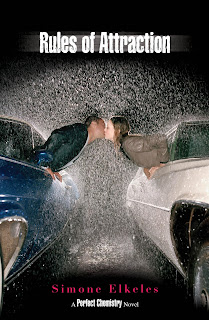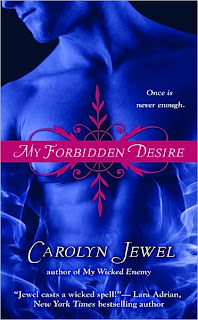STATUS: Dashing out again in about 15 minutes.
What’s playing on the iPod right now? COME BACK AND STAY by Paul Young
Sorry for the blog silence. I left my hotel around 8 in the morning yesterday and didn’t arrive back until after 10pm. Sure, I could have done the blog entry via my iPhone but I really can’t see me “thumbing” in a whole entry.
On Thursday, I stopped by Harlequin to talk with several editors there. Now I realize that this whole Horizons business was a corporate decision made at the Toronto headquarters and they probably didn’t even bother to tell the editors in New York before they did it but I still voiced my negative opinion about Horizons now called DellArte. Now one editor did try out the spiel about how publishing houses need to shift models in this bad economy but I wasn’t having any of that.
I said vanity publishing was predatory—plain and simple and that needed to be understood. That Harlequin had a reputation that they are now putting in jeopardy and that the writers organizations had every right to speak out strongly as their whole purpose is to protect writers.
And speaking of, Mystery Writers Of America issued a statement today. Here it is:
Dear MWA Member:
The Board of Mystery Writers of America voted unanimously on Wednesday to remove Harlequin and all of its imprints from our list of Approved Publishers, effective immediately. We did not take this action lightly. We did it because Harlequin remains in violation of our rules regarding the relationship between a traditional publisher and its various for-pay services.
What does this mean for current and future MWA members?
Any author who signs with Harlequin or any of its imprints from this date onward may not use their Harlequin books as the basis for active status membership nor will such books be eligible for Edgar® Award consideration. However books published by Harlequin under contracts signed before December 2, 2009 may still be the basis for Active Status membership and will still be eligible for Edgar® Award consideration (you may find the full text of the decision at the end of this bulletin).
Although Harlequin no longer offers its eHarlequin Critique Service and has changed the name of its pay-to-publish service, Harlequin still remains in violation of MWA rules regarding the relationship between a traditional publisher and its various for-pay services.
MWA does not object to Harlequin operating a pay-to-publish program or other for-pay services. The problem is HOW those pay-to-publish programs and other for-pay services are integrated into Harlequin’s traditional publishing business. MWA’s rules for publishers state:”
The publisher, within the past five years, may not have charged a fee to consider, read, submit, or comment on manuscripts; nor may the publisher, or any of the executives or editors under its employ, have offered authors self-publishing services, literary representation, paid editorial services, or paid promotional services.
If the publisher is affiliated with an entity that provides self-publishing, for-pay editorial services, or for-pay promotional services, the entities must be wholly separate and isolated from the publishing entity. They must not share employees, manuscripts, or authors or interact in any way. For example, the publishing entity must not refer authors to any of the for-pay entities nor give preferential treatment to manuscripts submitted that were edited, published, or promoted by the for-pay entity.
To avoid misleading authors, mentions and/or advertisements for the for-pay entities shall not be included with information on manuscript submission to the publishing company. Advertising by the publisher’s for-pay editorial, self-publishing or promotional services, whether affiliated with the publisher or not, must include a disclaimer that it is advertising and that use of those services offered by an affiliate of the publisher will not affect consideration of manuscripts submitted for publication.”
Harlequin’s Publisher and CEO Donna Hayes responded to our November 9 letter, and a follow up that we sent on November 30. In her response, which we have posted on the MWA website, Ms. Hayes states that Harlequin intends as standard practice to steer the authors that it rejects from its traditional publishing imprints to DellArte and its other affiliated, for-pay services. In addition, Harlequin mentions on the DellArte site that editors from its traditional publishing imprints will be monitoring DellArte titles for possible acquisition. It is this sort of integration that violates MWA rules.
MWA has a long-standing regard for the Harlequin publishing house and hopes that our continuing conversations will result in a change in their policies and the reinstatement of the Harlequin imprints to our approved list of publishers.
Frankie Y. Bailey,
Executive Vice President,
MWAMWA’s Official Decision: That because Harlequin’s for pay publishing business violates MWA’s rules for approved publishers, MWA takes the following action: First, Harlequin shall be removed from MWA’s list of approved publishers upon the adoption of this motion; Second, that all current active status members of MWA whose status is based upon books published by Harlequin shall remain active status members; Third, that MWA decline applications for active membership based upon books published by Harlequin pursuant to contracts entered into after the effective date of this motion; Fourth, that books published by Harlequin pursuant to contracts entered into prior to the adoption of this motion shall be eligible for the Edgar® Awards, except that books published by DellArte Press shall not be eligible for the Edgar® Awards regardless of when such contract was entered into; and Fifth that books published by Harlequin pursuant to contracts entered into after the adoption of this motion shall not be eligible for the Edgar® Awards.
MWA’s Executive Vice-President, and her or his designates, are directed to continue discussions with Harlequin in an effort to reach an agreement that would allow for Harlequin to be an approved publisher according to MWA’s rules. This e-bulletin was prepared by the MWA national office on behalf of the MWA National Board of Directors.
I have been told that Harlequin is still have dicussions with RWA over this matter.
Good but I don’t necessarily see Harlequin abandoning this appalling business path with Horizons/DellArte. I think the lure of easy money is too strong.









+jpg.jpg)